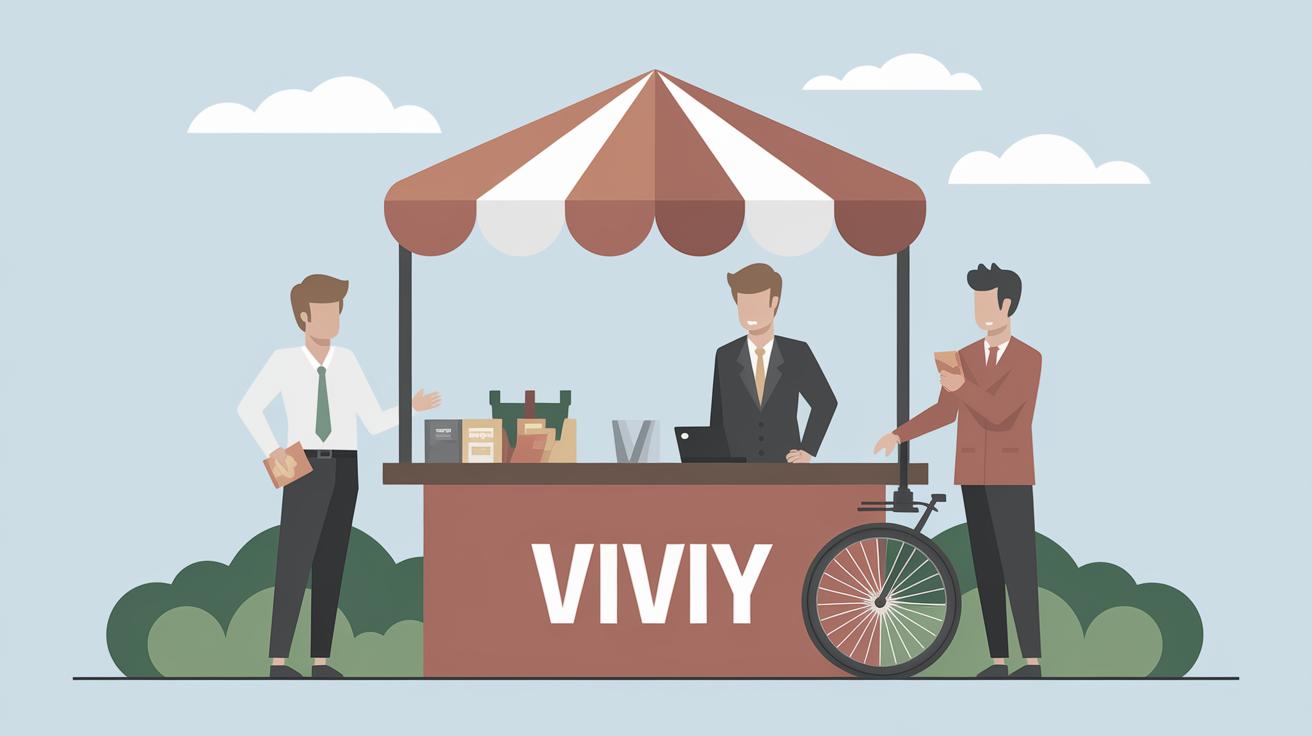Understanding the Costs of Vendor Insurance: An In-Depth Look
Vendor insurance plays a crucial role in protecting your business from unforeseen risks that may arise during events and transactions. The cost of such insurance can vary depending on the coverage options chosen and the specific needs of your business. In this post, we will delve into the various components of vendor insurance, such as Commercial General Liability Coverage, Medical Expense Coverage, Equipment Replacement Coverage, and Additional Insured Coverage. By exploring real-world scenarios, we aim to highlight the importance of this insurance and the peace of mind it offers. Following this, we’ll address common FAQs and how annual vendor liability insurance provides comprehensive protection for vendors.
Commercial General Liability Coverage
Commercial General Liability (CGL) coverage is a cornerstone for any vendor’s insurance policy. This type of insurance is essential for safeguarding your business against claims of bodily injury, property damage, and personal or advertising injuries that occur during the course of your operations. Vendors who participate in public events or interact frequently with customers face a heightened risk of such incidents, making CGL coverage invaluable.
The cost of CGL insurance is influenced by several factors, including the nature of your business, the number of events participated in annually, and the level of risk associated with these events. Typically, vendors can expect to pay anywhere from a few hundred to a few thousand dollars per year for this coverage. The key is to assess your business needs carefully and work with an insurance agent to determine the right coverage limits to adequately protect your enterprise.
Medical Expense Coverage
Medical Expense Coverage, often included within a CGL policy, provides compensation for medical expenses incurred by a third-party due to an accident that occurs on your business premises or as a result of your operations. This is crucial for vendors, as it covers immediate medical costs without needing to establish fault, which can mitigate potential lawsuits.
The premium for medical expense coverage is generally less cumbersome than other forms of liability insurance due to its limited scope, typically ranging in the lower hundreds of dollars per year. Despite its modest cost, this coverage can prove lifesaving in circumstances where a customer trips over your display setup, ensuring that medical payments are handled promptly and efficiently.
Equipment Replacement Coverage
Vendors rely heavily on their equipment to showcase products, process transactions, or perform services. Equipment Replacement Coverage protects businesses from losses related to the theft, damage, or destruction of their essential tools and machinery. With high-cost items being a significant investment, securing this type of coverage is a wise decision.
Premiums for Equipment Replacement Coverage are based on the value and risk of the equipment insured. Vendors should take inventory of their essential assets and determine their total value to choose a suitable coverage level. While it may increase overall insurance costs, coverage for high-value equipment ensures you can recover swiftly from setbacks without substantial out-of-pocket expenses.
Additional Insured Coverage
Additional Insured Coverage is an option that allows vendors to extend their liability insurance to include parties they do business with, such as event organizers or venue owners. This coverage is often required by these parties as part of the vendor’s participation agreement, offering them protection against potential claims arising from the vendor’s operations.
The inclusion of Additional Insured Coverage typically involves a nominal increase in your insurance premium, reflecting the added protection for third parties. This coverage demonstrates professionalism and a commitment to mutual protection, and by carrying it, vendors not only fulfill contractual obligations but also forge stronger professional relationships.
Protect what you love from what you don’t love: the unexpected
Running a vendor business is unpredictable, and having insurance helps mitigate the impact of unexpected incidents. Whether it’s an unforeseen accident or equipment failure, comprehensive insurance allows business owners to focus on what they love—engaging with customers and growing their business—rather than dealing with potentially crippling financial pitfalls.
Investing in the right insurance coverage ensures that vendors can weather unforeseen challenges with ease. This peace of mind allows vendors to concentrate on expansion and service excellency, secure in the knowledge they are protected against the unexpected elements of their trade.
What if a food truck backed into your booth?
Imagine the chaos and potential loss if a food truck accidentally backed into your booth during a bustling event. The damage to your stall and merchandise could result in significant financial setbacks. In such scenarios, having adequate insurance coverage ensures that repairs and losses are covered, allowing for a swift recovery without personal financial distress.
This type of incident highlights the necessity of vendor insurance as an integral part of business strategy. By planning ahead and securing suitable liability insurance, vendors can protect their business against accidents that are beyond control, maintaining their operation’s viability regardless of such disruptions.
What if your goods became damaged at an event?
Transporting products to different event locations exposes them to potential damage risks. Whether due to unexpected vandalism or adverse weather conditions, such incidents can result in a complete loss of merchandise without proper insurance coverage. Equipment and property damage insurance serve as a critical safety net under these circumstances.
By investing in comprehensive coverage, vendors ensure that damaged goods are reimbursed or replaced, preserving inventory levels and preventing downturns in revenue. This financial protection is indispensable in maintaining the steady flow of business operations regardless of event location hazards.
What if your business is named in a lawsuit?
Even a minor mishap has the potential to escalate into a full-blown legal issue. Vendors can find themselves implicated in lawsuits due to personal injuries or perceived negligence during their operations. Legal proceedings are not only time-consuming but can be financially debilitating without liability insurance in place.
Liability insurance provides essential support in these situations, covering legal fees and potential settlements. This ensures that business resources are not entirely consumed by legal battles, safeguarding your interests and allowing continued focus on day-to-day operations.
Get Annual Vendor Liability Insurance
Purchasing annual vendor liability insurance is both a cost-effective and strategic approach. By opting for an annual plan, vendors can secure consistent coverage throughout the year, often at favorable premium rates compared to short-term policies.
Annual insurance facilitates better financial planning as it spreads insurance costs over an extended period. Vendors gain peace of mind knowing they are protected against a wide array of risks, allowing for uninterrupted pursuit of business opportunities.
What kind of coverage does vendor liability insurance provide?
Vendor liability insurance encompasses various forms of protection, including general liability, product liability, and professional liability coverage among others. Tailored specifically for the nature and scope of a vendor’s operations, it ensures comprehensive protection against typical risks in the vendor industry.
Vendors should consult with insurance professionals to understand the full range of options available and select coverage that best aligns with their specific needs. Such informed decisions are crucial for long-term sustainability and success in the market.
FAQ.
Here are some frequently asked questions that vendors typically have regarding the cost and benefits of vendor insurance:
-
What factors influence the cost of vendor insurance?
The cost is influenced by factors such as the nature of the business, types of events participated in, equipment value, and risk exposure. -
Is vendor insurance necessary for a small business?
Yes, vendor insurance is vital for protecting small businesses from potential financial losses due to unforeseen incidents. -
Can I adjust my coverage as my business grows?
Absolutely, policies can often be adjusted to match the evolving needs of your business, providing flexibility and comprehensive protection over time.
Final Thoughts
For vendors, understanding and investing in the right insurance coverage is an essential part of business planning and growth. From safeguarding against accidents and operational errors to ensuring the replacement of crucial equipment, vendor insurance is indispensable for minimizing risks. Below is a summary table outlining the key points covered in this article.
| Coverage Type | Description |
|---|---|
| Commercial General Liability Coverage | Protects against bodily injury, property damage, and personal injuries during operations. |
| Medical Expense Coverage | Covers immediate medical costs for third-party injuries on business premises. |
| Equipment Replacement Coverage | Insures against theft, damage, or destruction of essential business equipment. |
| Additional Insured Coverage | Extends liability insurance to include partners like event organizers and venue owners. |


